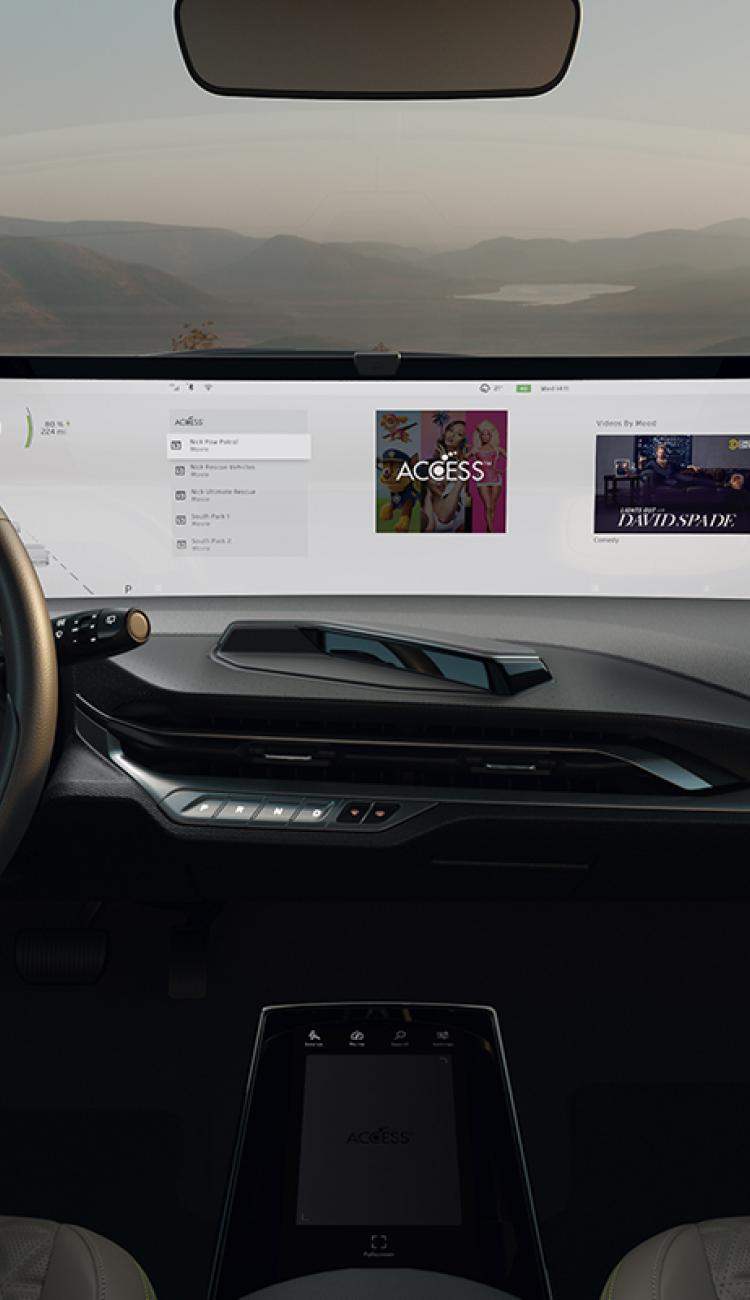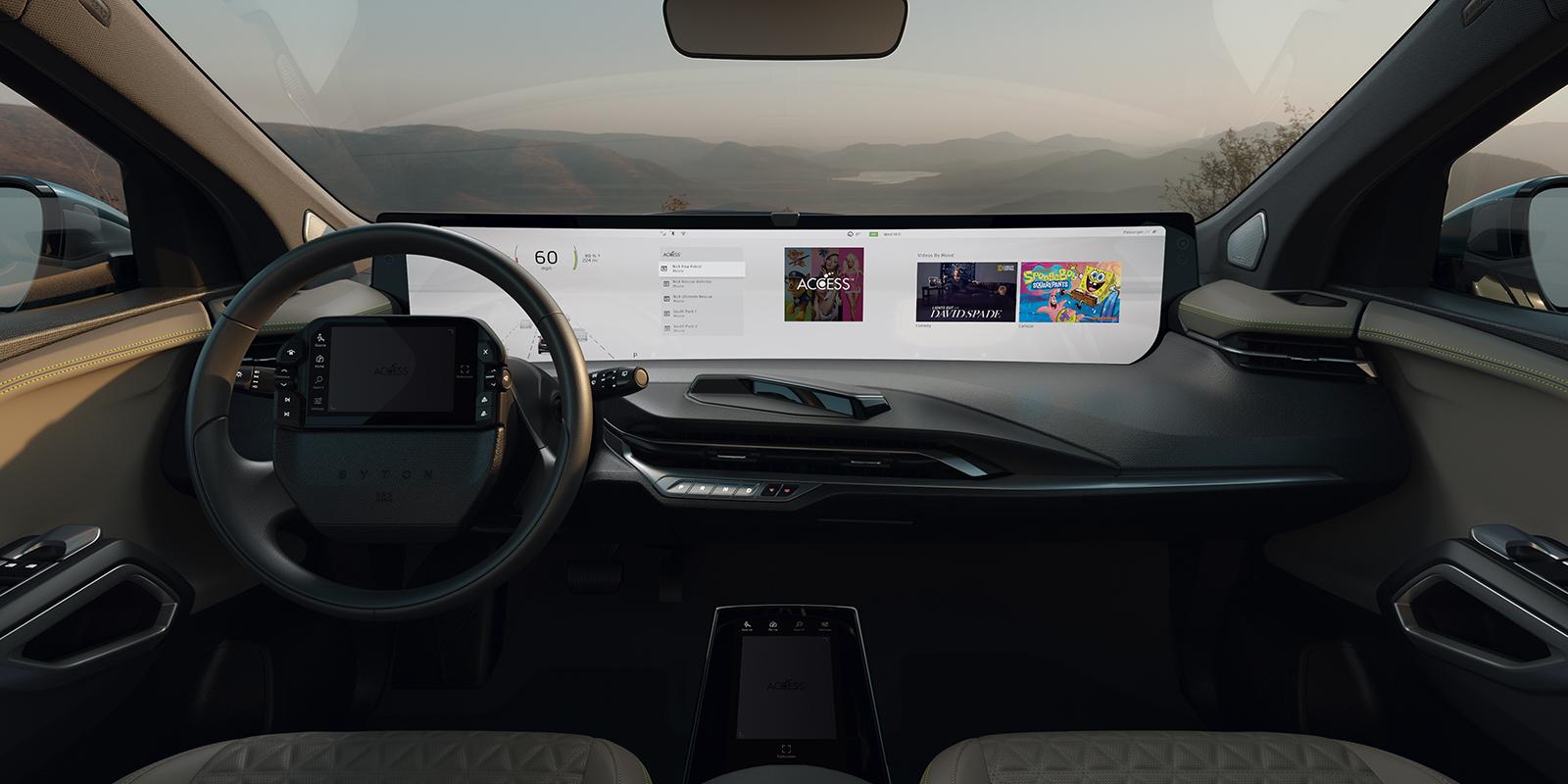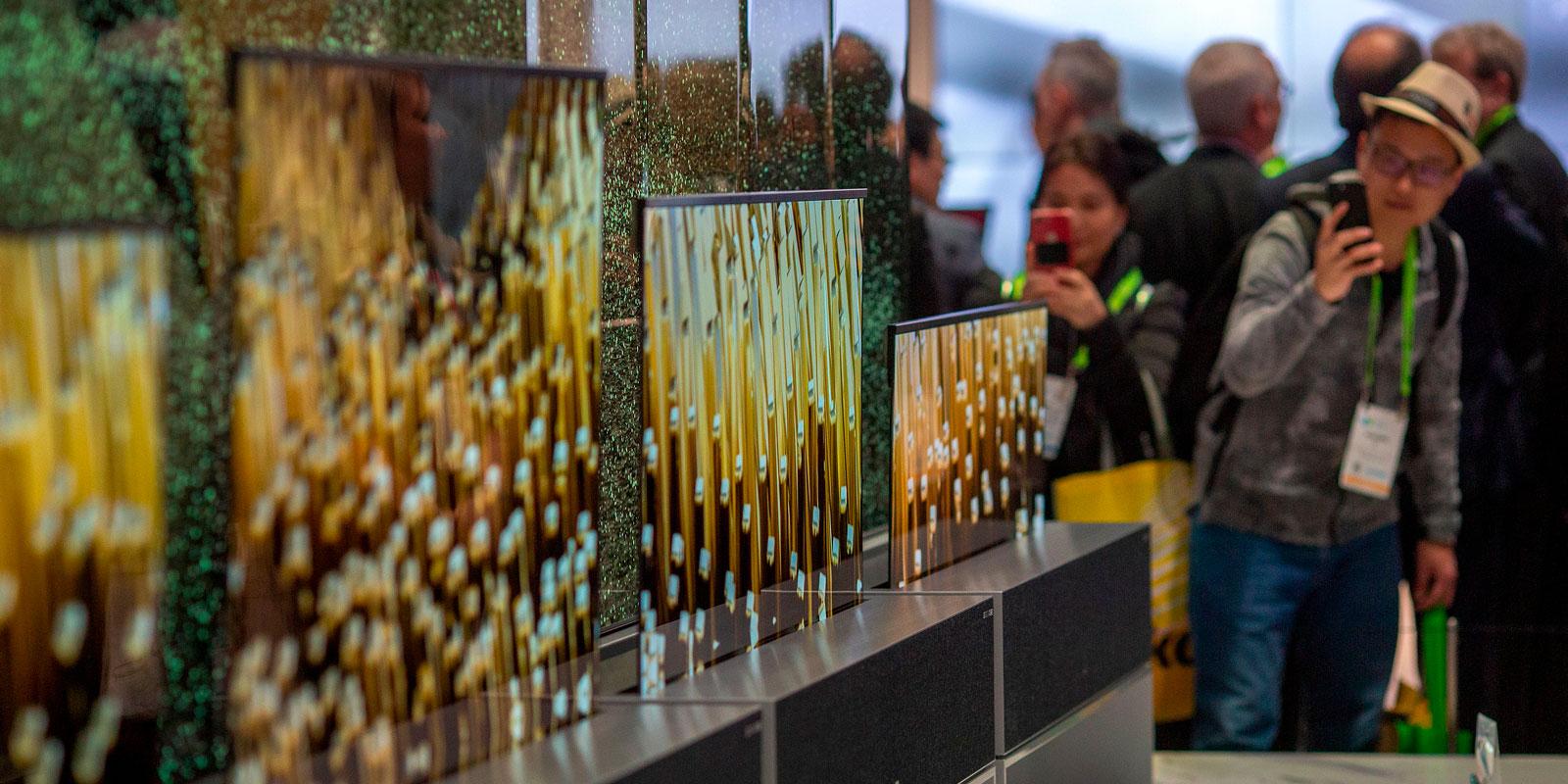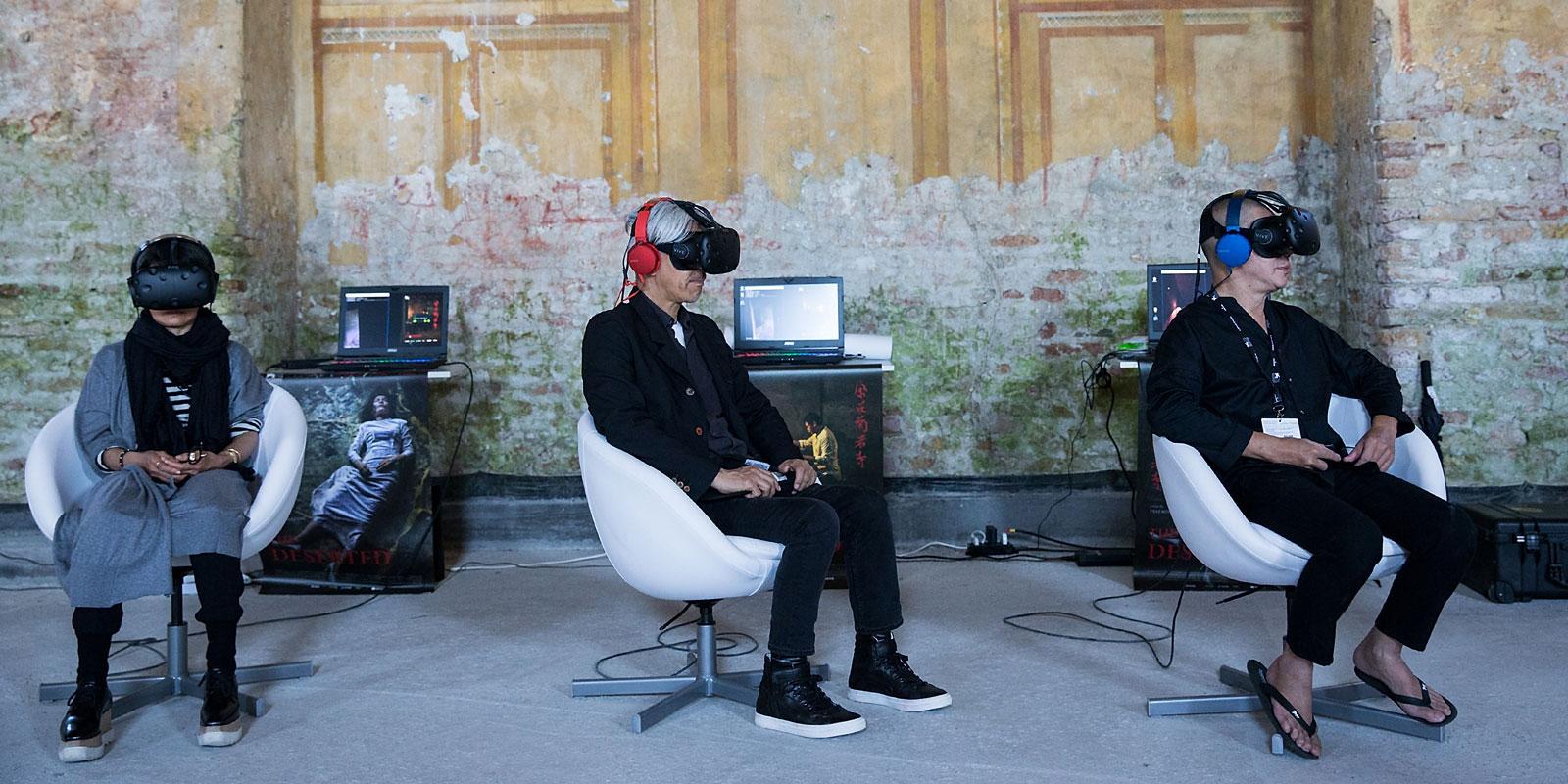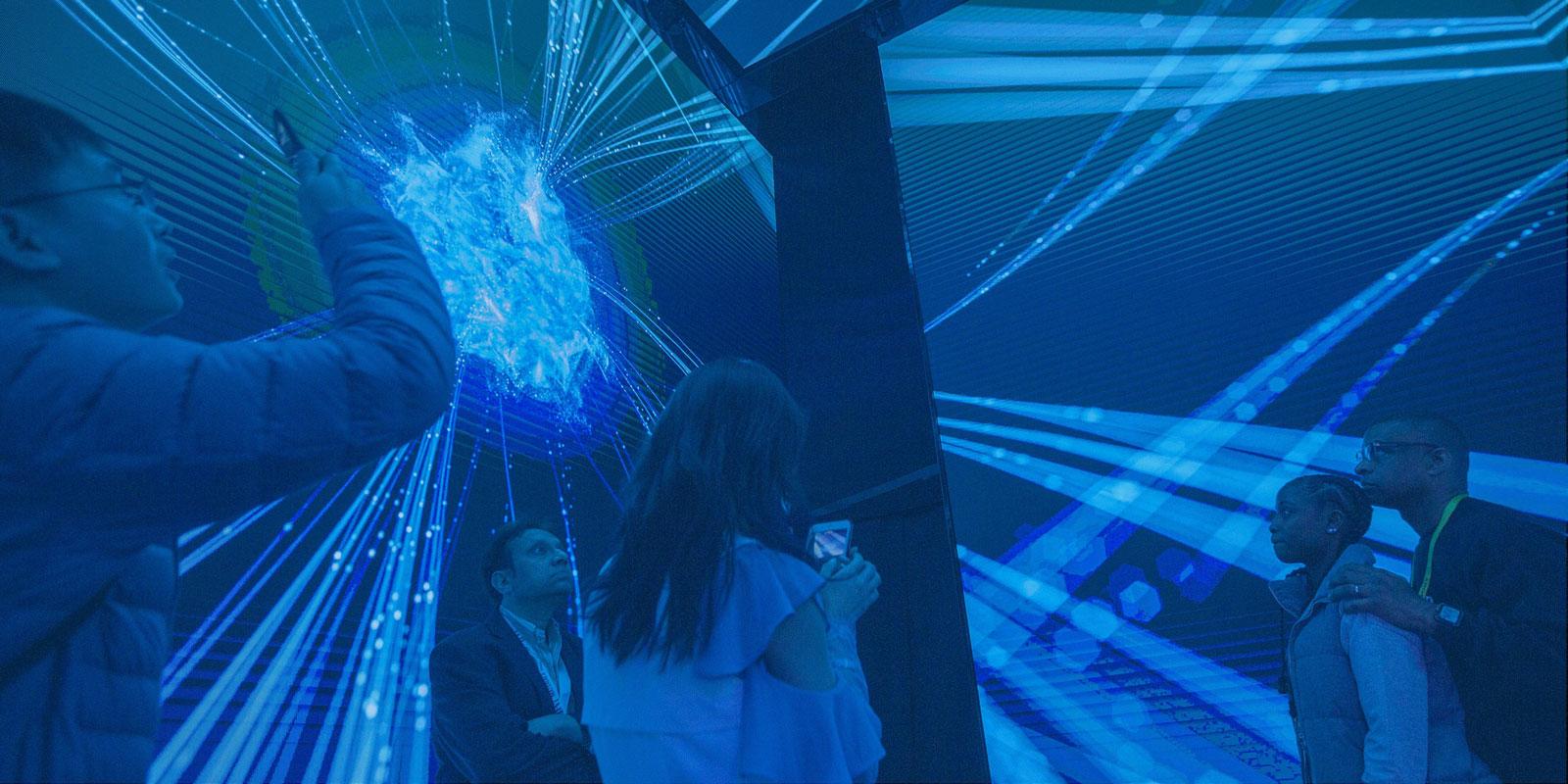Jan 06, 2020
“The living room is effectively anywhere,” says ViacomCBS futurist Ted Schilowitz.
On Sunday, ViacomCBS partnered with advanced technologies company ACCESS and electric vehicle manufacturer BYTON to showcase the in-car experience of the future. Visitors to CES 2020, which runs from Tuesday, Jan. 7 to Friday, Jan. 10 in Las Vegas, can drop in on a demonstration booth highlighting the new M-Byte premium electric vehicle from BYTON, which includes a 48-inch screen that will provide in-car entertainment experiences for passengers. The display will feature ViacomCBS content to showcase how the ACCESS Twine4Car ecosystem can distribute content across the built-in screen and passengers’ mobile devices.
The ACCESS partnership, which builds on earlier agreements to deliver ViacomCBS’ content to vehicle passengers, is part of ViacomCBS’ long-term expansion onto platforms beyond television.
On-demand in-car entertainment and other once-remote-seeming, on-the-go fantasies are part of what Paramount Pictures Futurist-in-Residence Ted Schilowitz calls the “expanding living room,” a no-couch-required entertainment zone in which consumers need nothing more than a connected screen. Part of Schilowitz’s job is to figure out which previously inaccessible zones will open up next, and devise ways for ViacomCBS to maximize its potential. In a conversation prior to Sunday’s launch event, Schilowitz offered his perspective on the ACCESS and BYTON partnerships and what they mean both for ViacomCBS, and the entertainment industry at large.
Here are Schilowitz’s seven takeaways:
BYTON’s 48-inch in-car connected screen will redefine in-car entertainment.
“One of the things we know is that people will gravitate toward the best screen they have available. So if the phone screen is the only thing they have, that's what they'll use. They'll still use a phone if the TV is an old TV. But if the TV is a modern, high-resolution, connected device on which they can just as easily access our vast array of ViacomCBS content, they're going to use the most advanced screen that they've got. That's where the BYTON partnership starts to become really interesting for us.”
BYTON is starting from scratch, giving it built-in advantages over legacy auto manufacturers.
“BYTON is born from some bold, forward-thinking key executives from BMW and Nissan. An advanced Chinese car company with German and Japanese automotive roots. They're building this ground-up platform with advanced autonomous capabilities and the most advanced media experiences deployed in a car. They're not backing into it later. It's not a software update. It's the idea that this is a media machine at its core in addition to an advanced long-range electric vehicle. This is the car of 2020 and beyond.”
The new living room is everywhere.
“In years past, the living room was this physical space with a heavy, cumbersome physical device that had to live there. Today, the living room is effectively anywhere, because devices are so portable and so mobile. The next step of ‘where is the most interesting living room’ is when you're on a two-hour commute in your car, right? If I'm on a long commute, I've got lots of time to consume my entertainment. If I’m on a short- or medium-length drive I have time for some good snackable content. We see the rise of podcasts, audiobooks and all kinds of audio-centric media, but it's still audio media. Now, in 2020, we're seriously starting to look at offering ViacomCBS media in cars on the native front-seat screens.”
This living room will only keep growing.
“The living room can go anywhere you have connectivity. Data connectivity is key to the success of this. We know we can take our small data-connected screens with us. The next evolution is advancing the screens in our car so that they're actually media experiences as opposed to navigation screens that we've modified into entertainment centers. This is really an entertainment center in our car. That's what BYTON is doing along with us at Viacom/CBS. We are putting a large focus on that evolution of the media experience as well as what we are looking at for automotive advancements in media.”
LTE will work for now, but 5G connectivity will be the key to maximizing mobile entertainment’s potential.
“It's a struggle to do next-gen advanced media on today's LTE. We can do traditional media on today's LTE, but we can't really do advanced interactive media on today's LTE effectively. This is where 5G is critical. If you look at tying it into the BYTON media experience, the car is going to have advanced video chat capabilities as part of its next-generation telecommunication suite and media suite, so you're going to want to be able to access lots of media on the go, stream and download things really quickly, watch things wherever you are. That's where 5G starts to become really key to the modern mobile media experience.”
The enormous ViacomCBS library makes it a logical content partner for any tech company pioneering new consumer platforms.
“ViacomCBS is now looking at this much broader spectrum of what we call media opportunity. We're one of the largest media-creation enterprises on the planet. Doing something with a new car company is an untapped opportunity. From a futurist perspective, relatively soon the idea of this exotic experience of letting the car drive itself will start to become somewhat normalized. Once you don’t have to drive the car, you will likely want to enjoy your favorite shows, movies, sports and news programming on your ride. Viacom/CBS is forward-thinking in all this content, so now is the time for us to figure out what the self-driving automotive entertainment experience is and how we best connect those dots for our viewers. Not five years from now, the time to do that is now.”
ViacomCBS will help shape the future of entertainment
“ViacomCBS has an eye to the future. We are not leaning on the past. We are looking at what is new, what is exciting to our viewers and customers. Where do they want to be? What does their living room look like? How do they access their media and how can we be the most relevant part of that conversation for them? That's what it comes down to and what we are putting significant focus on in 2020.”
